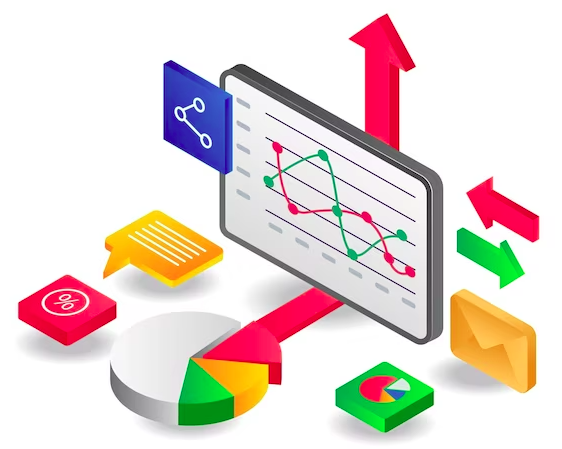In the dynamic landscape of banking, knowledge derived from a data analyst course has emerged as a cornerstone for enhancing customer service and driving operational excellence. This article explores how data analytics methodologies are revolutionising the banking sector in Hyderabad, enabling financial institutions to better understand customer needs, personalise services, and optimise operations for improved efficiency and customer satisfaction.
- Customer Segmentation and Personalisation
Data analytics empowers banks in Hyderabad to segment their customer base effectively based on demographic, behavioural, and transactional data. By leveraging advanced segmentation techniques, banks can tailor their products and services to meet different customer segments’ unique needs and preferences. This personalised approach enhances customer satisfaction, fosters stronger relationships, and increases customer loyalty over time.
- Fraud Detection and Prevention
In an era of increasing cybersecurity threats, a data analytics course in Hyderabad plays a crucial role in detecting numerous frauds and preventing them within the banking sector. Advanced analytics algorithms analyse vast amounts of transaction data in real time, identifying suspicious patterns and anomalies that may indicate fraudulent activity. By leveraging machine learning and predictive modelling, banks can proactively identify and prevent fraudulent transactions, securing the interests of their customers and preserving trust in the banking system.
- Risk Management and Compliance
Data analytics enables banks in Hyderabad to enhance their risk management practices and ensure total compliance with regulatory requirements. By analysing historical data and various market trends, banks can assess credit, market, and operational risks more accurately, enabling proactive risk mitigation strategies. Moreover, analytics tools facilitate compliance monitoring and reporting, helping banks adhere to regulatory guidelines and avoid potential penalties or reputational damage.
- Improving Operational Efficiency
Data analytics drives operational efficiency and cost reduction across various functions within banks. Banks can streamline workflows, reduce manual errors, and minimise operational costs through process optimisation and automation. Furthermore, predictive analytics can forecast demand for banking services, enabling better resource allocation and capacity planning to meet customer needs efficiently.
- Enhancing Customer Experience
By leveraging a data analyst course, banks can gain deeper and actionable insights into customer behaviour and preferences, enabling them to offer personalised and proactive service experiences. Analysing customer feedback, transaction histories, and interaction data allows banks to figure out customer needs and provide timely, relevant solutions. Moreover, analytics-driven chatbots and virtual assistants enhance customer service by providing round-the-clock support and personalised assistance, improving overall customer satisfaction and loyalty.
- Product Innovation and Marketing
Data analytics empowers banks to innovate new products and services that address ever-changing customer needs and market trends. By analysing market data, competitor strategies, and customer feedback, banks can identify opportunities for product innovation and differentiation. Moreover, analytics-driven marketing campaigns enable banks to target the right audience with personalised offers and promotions, driving customer acquisition and retention.
- Optimising Channel Management
With the proliferation of digital channels in banking, data analytics remains crucial in optimising channel management strategies. Banks can identify channel preferences and usage patterns by analysing customer interactions across various channels, including online banking, mobile apps, and social media. This insight allows banks to optimise channel offerings, allocate resources effectively, and enhance the overall omnichannel experience for customers.
- Predictive Analytics for Financial Planning
Data analytics enables banks to harness the power of predictive analytics for financial planning and forecasting. Banks can forecast future trends and market conditions by analysing historical financial data and economic indicators, enabling better decision-making and risk management. Moreover, predictive models can assess the creditworthiness of customers and predict future revenue streams, supporting strategic planning and business growth initiatives.
Conclusion
In conclusion, data analysis has become indispensable for banks in Hyderabad seeking to enhance customer service, drive operational efficiency, and stay competitive. By leveraging the techniques of an advanced data analytics course in Hyderabad, banks can gain deeper insights into customer behavior, mitigate risks, and unlock new opportunities for innovation and growth. As the banking sector continues to evolve, data analytics will remain a key enabler of success, empowering banks to deliver superior customer experiences and drive sustainable business outcomes.
ExcelR – Data Science, Data Analytics and Business Analyst Course Training in Hyderabad
Address: Cyber Towers, PHASE-2, 5th Floor, Quadrant-2, HITEC City, Hyderabad, Telangana 500081
Phone: 096321 56744




